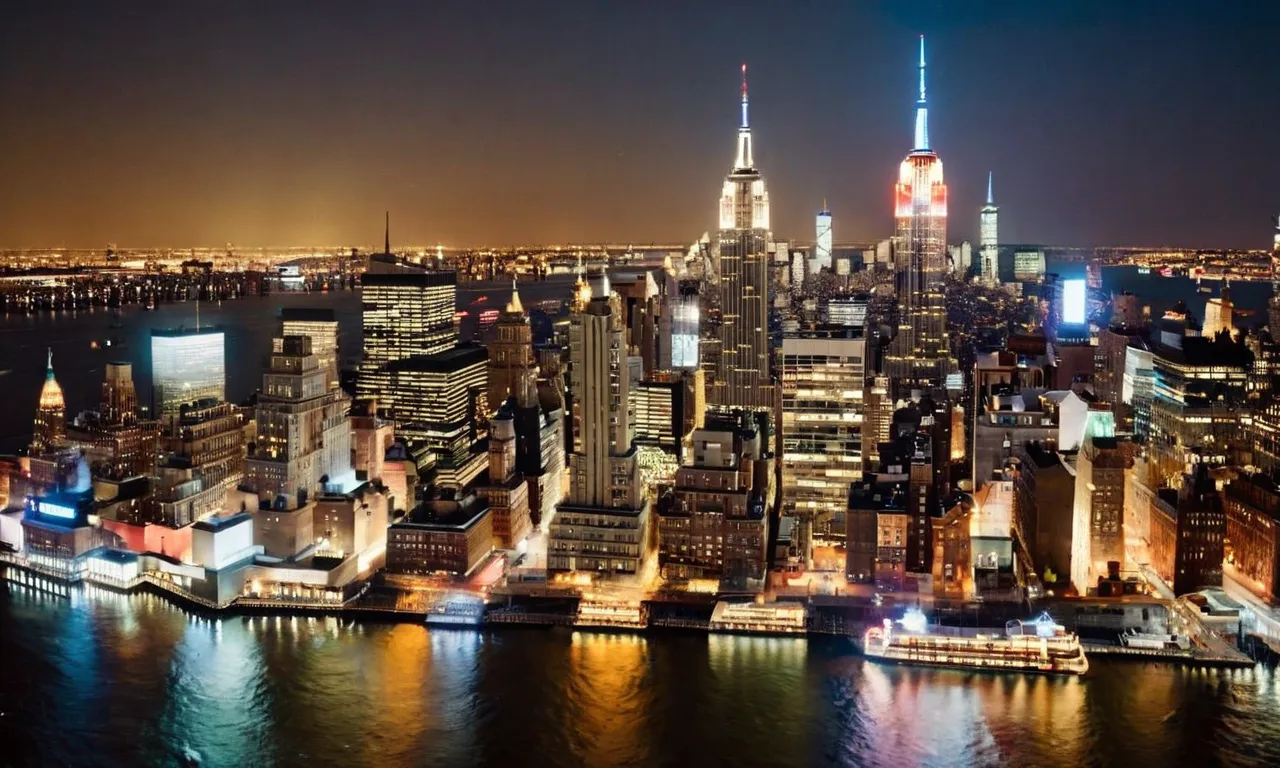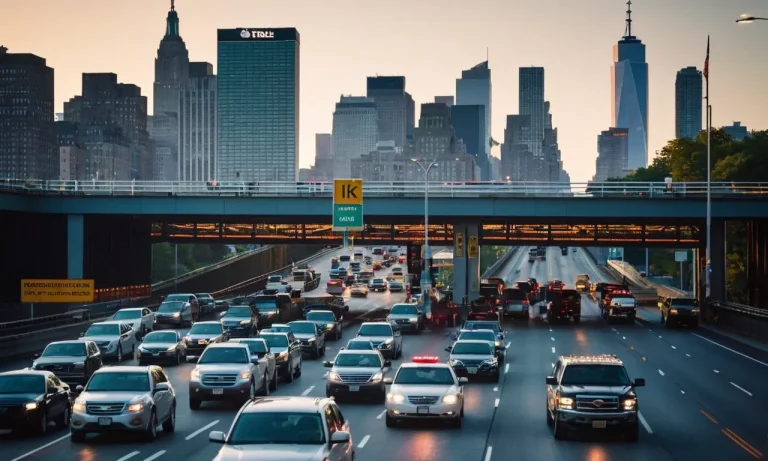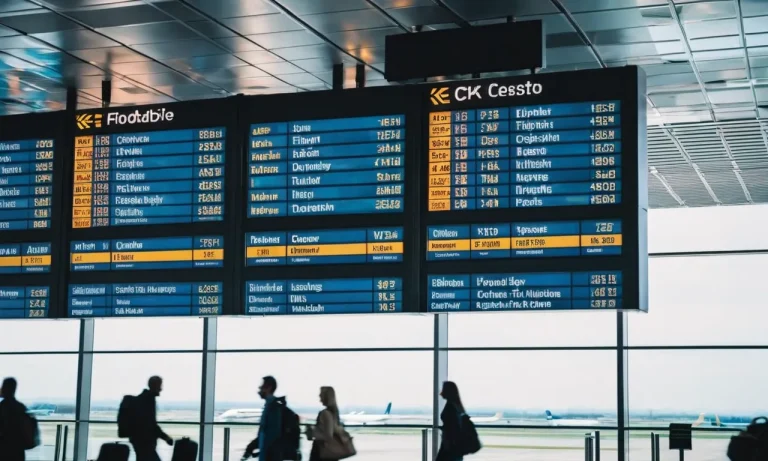Why Are Hotels In Nyc So Expensive?
New York City is one of the most popular tourist destinations in the world, attracting over 60 million visitors per year. However, many travelers are shocked by the high prices of hotels in the Big Apple.
If you’re short on time, here’s a quick answer: Hotels in NYC are so expensive due to high demand, limited room availability, prime real estate locations, high operating costs, and taxes.
In this approximately 3000 word article, we will analyze the major factors that contribute to NYC hotel rates being among the highest in the US. We’ll look at supply and demand dynamics, real estate costs, operational expenses, taxes and fees, and competition from alternative accommodation options.
Supply and Demand Imbalance
One of the main reasons why hotels in NYC are so expensive is due to the supply and demand imbalance. The city attracts millions of tourists each year, both from within the United States and from around the world.
This high demand for accommodations puts significant pressure on the limited supply of hotel rooms in the city.
High Tourist Demand
New York City is one of the most popular tourist destinations in the world. With iconic landmarks such as Times Square, Central Park, and the Statue of Liberty, it’s no wonder that millions of people flock to the city each year.
This high tourist demand creates a competitive market for hotel rooms, driving up prices.
The city’s vibrant arts and culture scene, world-class shopping, and renowned dining establishments further contribute to its appeal. Additionally, New York City hosts numerous events and festivals throughout the year, attracting even more visitors.
As a result, hotels in NYC experience high occupancy rates and can charge premium prices for their rooms.
According to a report by NYC & Company, the city’s official destination marketing organization, NYC welcomed a record-breaking 66.6 million visitors in 2019. This number has been steadily increasing over the past decade, indicating the sustained high demand for accommodations.
Limited Hotel Room Inventory
Despite the high demand, the availability of hotel rooms in NYC is limited. The city has a finite amount of land, and the cost of real estate is extremely high. This makes it challenging for hotels to expand or build new properties.
Furthermore, New York City has strict zoning regulations and building codes that can make it difficult for developers to construct new hotels. The process of obtaining permits and approvals can be time-consuming and costly.
As a result, the number of hotel rooms in NYC has not kept pace with the increasing demand. This scarcity of supply allows hotels to charge premium rates for their rooms. According to a report by Hotel News Resource, the average daily rate for hotel rooms in Manhattan, the most sought-after borough, was $317 in 2019.
Prime NYC Real Estate Costs
One of the main reasons why hotels in NYC are so expensive is due to the high cost of prime real estate in the city. New York City is one of the most desirable locations in the world, attracting millions of tourists and business travelers each year.
As a result, the demand for hotel rooms is extremely high, driving up the prices.
Competition for Limited Space
In Manhattan, where space is at a premium, hotels have to compete for limited available land. With iconic landmarks such as Times Square, Central Park, and the Empire State Building, developers face immense competition to secure a prime location for their hotels.
The scarcity of available land drives up the prices, which are then passed on to the guests.
High Property Taxes
New York City also has some of the highest property taxes in the country. These taxes are based on the assessed value of the property, which includes the land and any improvements made to it. Hotels, being commercial properties, face even higher taxes than residential properties.
The burden of these high property taxes is ultimately reflected in the room rates.
Operational Costs
Running a hotel in NYC comes with its own set of challenges and expenses. The cost of labor, including wages and benefits for hotel staff, is relatively high in the city. Additionally, the cost of utilities, maintenance, and other operational expenses is also higher compared to other locations.
These factors contribute to the overall cost of running a hotel in NYC, which is then passed on to the guests through higher room rates.
Market Demand
Lastly, the high prices of hotels in NYC can also be attributed to the simple principle of supply and demand. With a limited number of hotel rooms available in the city, and a constant inflow of tourists and business travelers, hotels can charge higher prices due to the high demand.
Visitors are willing to pay a premium to experience the vibrant culture, attractions, and opportunities that NYC has to offer.
It’s important to remember that while hotels in NYC may be expensive, the city offers a multitude of accommodation options to suit various budgets. From luxury hotels to budget-friendly alternatives, travelers can still find options that fit their needs and preferences.
High Operational Expenses
One of the main reasons why hotels in NYC are so expensive is due to the high operational expenses they incur. These expenses can be broken down into several categories.
Labor
The cost of labor in New York City is significantly higher compared to other parts of the country. The city’s minimum wage is higher than the federal minimum wage, and the cost of living is also higher.
As a result, hotels in NYC have to pay their employees higher wages, which adds to their operational expenses. Additionally, hotels in the city often employ a large number of staff to provide a high level of service to their guests, which further increases labor costs.
Utilities
New York City has some of the highest utility costs in the country. From electricity and water to heating and cooling, hotels have to bear the brunt of these expenses. The high demand for energy and limited availability of space in the city make it more expensive for hotels to source and maintain utilities.
These costs are then passed on to the customers, contributing to the overall expensive nature of hotels in NYC.
Insurance
Operating a hotel in a bustling city like New York comes with its own set of risks. Hotels have to invest in comprehensive insurance policies to protect themselves against potential liabilities, property damage, and other unforeseen events.
The high crime rate and the possibility of natural disasters further drive up insurance costs for hotels in NYC. To cover these expenses, hotels have to charge higher rates to their guests.
Maintenance
Maintaining a hotel in a city with such a high volume of guests and constant foot traffic can be quite expensive. Hotels in NYC have to invest heavily in regular maintenance and upkeep to ensure that their facilities are in top-notch condition.
This includes everything from repairing and replacing furniture and fixtures to ongoing renovations and upgrades. These maintenance costs contribute to the overall expenses of the hotel, making it more expensive for guests to stay.
Taxes and Fees
One of the major factors contributing to the high prices of hotels in New York City is the various taxes and fees imposed on the industry. These additional costs can significantly impact the overall price of a hotel stay for guests.
Tourism Taxes
New York City imposes a number of taxes specifically targeted at the tourism industry. The most significant of these is the hotel occupancy tax, which is a percentage of the room rate charged to guests. This tax can range from 5.875% to 14.75%, depending on the location and type of hotel.
Additionally, there is a New York City sales tax of 8.875% that applies to hotel stays, adding further to the overall cost.
Additional Fees
In addition to taxes, hotels in NYC often charge various fees that can further increase the price of a stay. These fees may include resort fees, which cover amenities such as Wi-Fi, gym access, and pool usage, as well as service charges for room service or housekeeping.
It’s important for guests to carefully review the breakdown of fees before booking to avoid any surprises.
Comparison to Other Cities
When comparing the cost of hotels in NYC to other major cities, the impact of taxes and fees becomes even more apparent. For example, a study conducted by Hotel News Resource found that the average daily rate for hotels in New York City in 2019 was $281.17, compared to $230.78 in Los Angeles and $191.21 in Chicago.
While factors such as demand and location also play a role, the higher taxes and fees in NYC contribute significantly to the disparity in prices.
Competition from Alternative Accommodations
In recent years, the rise of alternative accommodations such as Airbnb, HomeAway, and VRBO has significantly impacted the hotel industry in New York City. These platforms offer travelers the opportunity to book private apartments, homes, or rooms directly from property owners, often at a lower cost compared to traditional hotels.
This increased competition has put pressure on hotels to maintain their prices while also offering additional value to guests.
The Appeal of Alternative Accommodations
One of the main reasons why alternative accommodations have become popular is because they provide a unique and personalized experience for travelers. Staying in a local’s home or apartment allows visitors to immerse themselves in the culture of the city and feel like a resident rather than a tourist.
Additionally, many alternative accommodations offer amenities such as a kitchen, which can save travelers money on dining out.
Another factor contributing to the appeal of alternative accommodations is the flexibility they offer. With a wide range of options available, travelers can choose accommodations that suit their specific needs and preferences.
Whether they are looking for a budget-friendly option or a luxurious penthouse, these platforms provide a variety of choices for every type of traveler.
The Impact on Hotel Pricing
The increased popularity of alternative accommodations has forced hotels in NYC to re-evaluate their pricing strategies. In order to remain competitive, hotels have had to find ways to differentiate themselves from the alternative options.
This has led to an emphasis on providing exceptional service, unique amenities, and exclusive experiences that cannot be replicated in alternative accommodations.
While hotels may still command higher prices due to their brand reputation and the convenience they offer, they have had to become more creative in order to justify these higher costs. This has resulted in the introduction of innovative features such as rooftop bars, state-of-the-art fitness centers, and high-end dining options to attract guests and provide a memorable stay.
The Future of the Hotel Industry
As the sharing economy continues to grow, it is likely that alternative accommodations will remain a strong competitor to traditional hotels in NYC. However, hotels have the advantage of established infrastructure, consistent quality standards, and professional management that can provide a level of comfort and reliability that some travelers prefer.
In response to the rise of alternative accommodations, hotels are also exploring partnerships and collaborations with these platforms to offer a wider range of options to their customers. This hybrid approach allows hotels to tap into the growing demand for alternative accommodations while still maintaining their own brand identity and value proposition.
Conclusion
In summary, hotels in the NYC market face exceptional expense pressures from real estate, operations, and government taxes. When combined with huge tourist demand and limited hotel inventory, these factors lead to very high nightly rates.
While budget travelers may find hotels unaffordable, those willing to splurge will enjoy an amazing New York City experience with comfortable, luxurious accommodations steps from world-famous attractions.








